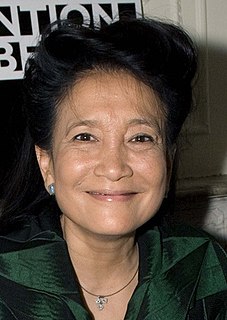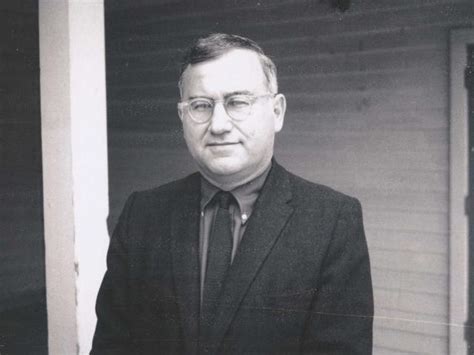A Quote by Homer Hickam
Until I began to build and launch rockets, I didn't know my hometown was at war with itself over its children and that my parents were locked in a kind of bloodless combat over how my brother and I would live our lives.
Related Quotes
The expense of getting into space is the rocket launch, the rocket itself. Rocket's right now, commercial rockets cost probably somewhere between $50, or $120, or $150 million per launch. And those are all expendable. That is, you've got to buy a new rocket for each launch. So, that really is the critical part. If there was some kind of really, a revolutionary breakthrough and the price of rockets fell by an order of magnitude, I mean, just imagine what that would do as far as getting access to more ordinary people.
if i have gained anything over these months, it is the knowledge there is no starting over - only living with the mistakes you've made. but then, caleb taught me long ago you can't build anything without some sort of foundation. maybe we learn to live our lives by understanding, firsthand, how not to live them.
But how to know the falsity of death? How can we know there is no death? Until we know that, our fear of death will not go either. Until we know the falsity of death, our lives will remain false. As long as there is fear of death, there cannot be authentic life. As long as we tremble with the fear of death, we cannot summon the capacity to live our lives. One can live only when the shadow of death has disappeared forever. How can a frightened and trembling mind live? And when death seems to be approaching every second, how is it possible to live? How can we live?
In those days, we imagined ourselves as being kept in some kind of holding pen, waiting to be released into our lives. And when the moment came, our lives -- and time itself -- would speed up. How were we to know that our lives had in any case begun, that some advantage had already been gained, some damage already inflicted? Also, that our release would only be into a larger holding pen, whose boundaries would be at first undiscernible.
If men lived like men indeed, their houses would be temples -- temples which we should hardly dare to injure, and in which it would make us holy to be permitted to live; and there must be a strange dissolution of natural affection, a strange unthankfulness for all that homes have given and parents taught, a strange consciousness that we have been unfaithful to our fathers honor, or that our own lives are not such as would make our dwellings sacred to our children, when each man would fain build to himself, and build for the little revolution of his own life only.
Because of the irresistible nature of our own Imagos, I think the replication of it in music is a siren song - we love those tormented songs, and we listen to them over and over and over the way that we smash ourselves into our lovers, or the same kind of lover, over and over. That drive is tireless, until it is resolved. And we can "enjoy" it safely through music, which is a simulacrum we have power over.
'Our parents' generation had it a lot tougher than we did. They had to live through the Depression, World War II, and then they had to, you know, try to pick up the pieces of their lives and bring up their children. And, it was a great example for us. I guess we grew up with a certain amount of the ethics our parents had, which is, you know: work hard, make your own way, be independent.
Barack Obama has done more than anyone else to promote the dangerous illusion that we can choose whether to have a war or not. But our enemies have already made that choice. Retired Marine Corps General James Mattis said: “No war is over until the enemy says it's over. We may think it's over, we may declare it over, but in fact, the enemy gets a vote“.
In 1990, when we started the Black Community Crusade for Children, we were always talking about all children, but we paid particular attention to children who were not white, who were poor, who were disabled, and who were the most vulnerable.Parents didn't think their children would live to adulthood, and the children didn't think they were going to live to adulthood. That's when we started our first gun-violence campaign. We've lost 17 times more young black people to gun violence since 1968 than we lost in all the lynching in slavery.
Either over neither, both over either/or, live-and-let-live over stand-or die, high spirits over low, energy over apathy, wit over dullness, jokes over homilies, good humor over jokes, good nature over bad, feeling over sentiment, truth over poetry, consciousness over explanations, tragedy over pathos, comedy over tragedy, entertainment over art, private over public, generosity over meanness, charity over murder, love over charity, irreplaceable over interchangeable, divergence over concurrence, principle over interest, people over principle.


































